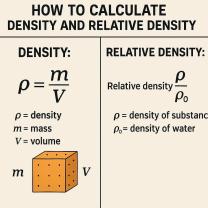What does teacher training involve?
Teacher training involves the preparation and development of individuals to become effective educators in various educational settings. The process typically includes a combination of academic coursework, practical classroom experience, and assessments to ensure that aspiring teachers acquire the necessary knowledge, skills, and dispositions to excel in the teaching profession. The specifics of teacher training can vary by country, state, or educational institution, but here is a general overview of what teacher training often involves:
Educational Background:
- Individuals interested in becoming teachers usually start by obtaining a relevant educational background. This often involves completing a bachelor's degree in education or a specific subject area (for secondary education). Some programs may also require or offer a master's degree in education.
Prerequisite Courses:
- Teacher training programs typically include prerequisite courses that cover foundational topics in education, pedagogy, child development, educational psychology, and classroom management.
Specialization:
- Aspiring teachers often choose a specialization or subject area they want to teach. This could be specific subjects like mathematics, English, science, social studies, or special education.
Pedagogical Training:
- Teacher education programs provide instruction in pedagogy, teaching methods, and instructional strategies. This includes learning how to plan and deliver effective lessons, create engaging learning materials, and differentiate instruction to meet the diverse needs of students.
Classroom Observation and Field Experience:
- Teacher training involves practical experience in real classroom settings. This may include classroom observation, student teaching, or internships under the supervision of experienced educators. This hands-on experience is crucial for applying theoretical knowledge to actual teaching situations.
Lesson Planning and Curriculum Development:
- Aspiring teachers learn how to develop lesson plans and design curriculum materials aligned with educational standards. They gain an understanding of curriculum development processes and how to create engaging and effective learning experiences for students.
Assessment and Evaluation:
- Teachers must be able to assess student learning and evaluate the effectiveness of their teaching. Teacher training includes instruction on designing assessments, grading, providing feedback, and using assessment data to inform instructional decisions.
Classroom Management:
- Effective classroom management is essential for creating a positive and conducive learning environment. Teacher training programs address strategies for managing student behavior, establishing routines, and promoting a positive classroom culture.
Educational Technology Integration:
- Given the increasing role of technology in education, teacher training often includes instruction on integrating educational technology into the classroom. This involves using tools and platforms to enhance teaching and facilitate student learning.
Legal and Ethical Considerations:
- As part of teacher training, educators learn about legal and ethical considerations in education. This includes understanding student privacy laws, professional ethics, and the rights and responsibilities of educators.
Professional Development:
- Teacher training is not a one-time event. It is an ongoing process that extends into a teacher's professional career. Continuous professional development opportunities are available to help teachers stay current with educational research, best practices, and new technologies.
Teacher training programs are often offered by colleges and universities, and they may lead to a teaching credential or licensure, depending on the requirements of the specific education system. In addition to formal teacher education programs, alternative routes to certification may be available in some regions, allowing individuals with non-traditional backgrounds to become certified teachers through additional training and assessments.
What does teacher training typically encompass?
Teacher training is a multifaceted process that equips aspiring and current educators with the knowledge, skills, and dispositions necessary to effectively lead and inspire students. It typically encompasses several key areas:
1. Subject Matter Knowledge:
- Deep understanding of the subject matter they will be teaching.
- Ability to analyze and interpret information related to the subject.
- Staying current on research and advancements within the field.
2. Pedagogical Knowledge and Skills:
- Effective teaching methods and strategies aligned with learning theories and student needs.
- Assessment techniques to measure student learning and inform instruction.
- Classroom management and organization skills to create a positive and productive learning environment.
- Differentiation of instruction to cater to diverse learners and learning styles.
3. Professional Knowledge and Skills:
- Understanding of the educational system, policies, and standards.
- Collaboration and communication skills to work effectively with colleagues, parents, and the community.
- Ethics and professional conduct in the educational setting.
- Reflection and self-evaluation skills for continuous improvement.
4. Technological Integration:
- Knowledge of and ability to use technology effectively in teaching and learning.
- Understanding of digital citizenship and online safety practices.
- Integration of technology to enhance student engagement, access, and learning outcomes.
5. Social and Emotional Learning (SEL):
- Understanding of child development and learning.
- Strategies for fostering positive relationships with students and building a supportive classroom community.
- Ability to address social and emotional needs of students and create a safe and inclusive learning environment.
Additionally, teacher training may also include:
- Field experiences: Practical placements in classrooms to observe and apply learned skills.
- Mentorship: Guidance and support from experienced educators.
- Specialized training: Focus on specific areas like literacy, special education, or English language learning.
The specific elements and duration of teacher training programs can vary depending on the country, state, and institution. However, the core principles of equipping educators with the knowledge, skills, and dispositions to effectively guide and inspire students remain consistent across various programs.
I hope this overview provides a helpful understanding of what teacher training typically encompasses. If you have any further questions about specific aspects of teacher training, feel free to ask!













